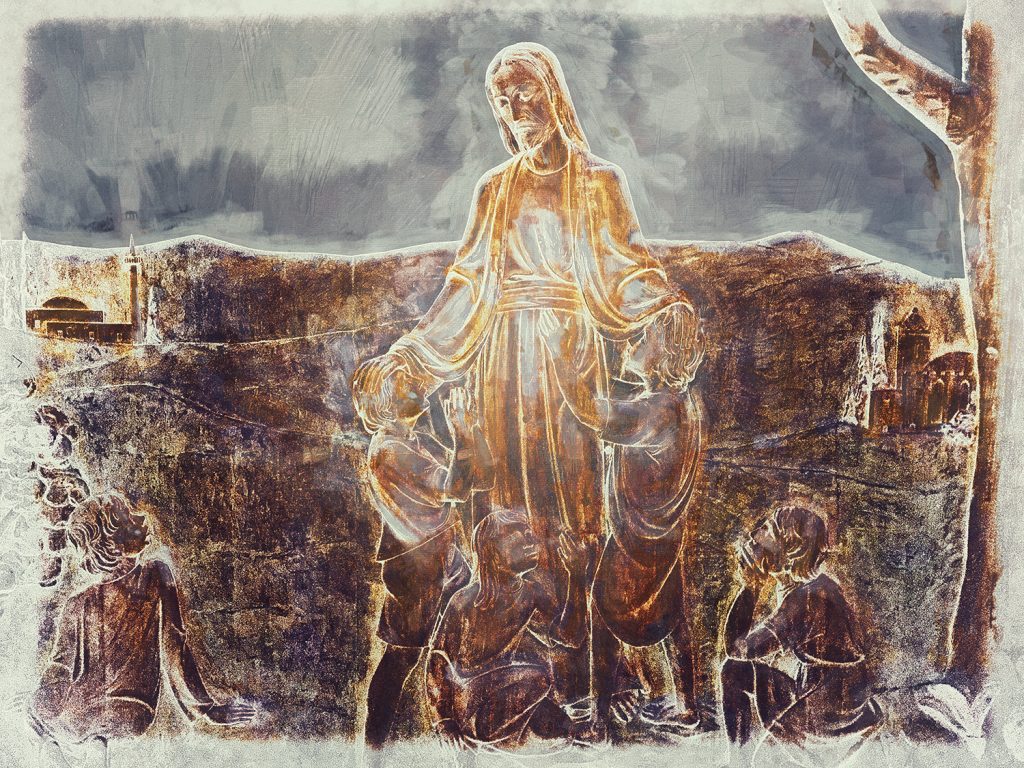(from a Spiritual Warfare talk given by Father Wolfgang Seitz in 2018)
Do you have fears? Fear of suffering, fear of not being comfortable, fear of having children, fear maybe to become a priest, fear of not being accepted and loved, fear not to have enough money in your bank account, fear to be humiliated, ridiculed, fear to fail? Now, we are driven by so many fears, which impede us to practice virtue and to follow God’s Will.
In the end, it comes down to this: the reason why the Church has few saints is because people have so much fear of suffering. Don’t fear to suffer. Nobody likes suffering, but when it comes, God allows it to happen for a very good reason. Then pray. Go to your knees, and ask God to give you the strength to embrace it. It will be liberating for you in the end. It will build you up, it will make you mature. It will make you free and bring you peace. If your life consists in running away from suffering, you’re constantly living in fear.
First of all, fear is a lie. Fear is not rational. It’s irrational. Fear is a consequence of original sin. It’s the consequence of a weak faith. Fear is the great enemy of peace. Remember Saint Peter walking on the water—he was confident [while] keeping his gaze on Jesus alone. But then he began to look at the storm. This can be the world, how people think of us, what we could lose, [or] we could feel cold—all these things. When [Saint Peter] looked at the storm, then he was frightened and was swallowed instantly by the water.
Souls that are threatened by fear must resolutely confront their fears and try to overcome them. Saint Teresa of Ávila assures us that the devil “is very much afraid of resolute souls, knowing by experience that they inflict great injury upon him. And when he plans to do them harm, he only profits them and others, and is himself the loser.”
Free me from evil passions and cleanse my heart of all disorderly affection so that, healed and purified within, I may be fit to love, strong to suffer, and firm to persevere. Love is an excellent thing, a very great blessing, indeed. It makes every difficulty easy, and bears all wrongs with equanimity. For it bears a burden without being weighted and renders sweet all that is bitter. The noble love of Jesus spurs to great deeds and excites longing for that which is more perfect.
Thomas á Kempis, “The Imitation of Christ”
(from a Consecration to Jesus, through Saints Joseph and Mary, by Dr. Gregory Bottaro)
Love wills the good of the other. Love finds joy when another is successful. To love another is [even] to be willing to suffer for them. When someone we love is given gifts or graces, we celebrate with them. An envious heart is saddened at the supernatural gifts or graces that another has received from the Lord.
Saint Joseph lived and loved the Immaculate and Sacred Hearts. He knew them intimately. [Jesus and Mary] possessed gifts and graces that Saint Joseph could never possess. He could never be the Son of God. He could never be Immaculately Conceived. He was at total peace with himself and the Father’s confidence in his care for our Lady and Jesus.
Saint Joseph lived a life of love. He longed to love [Jesus and Mary] with his whole heart. He longed, not to possess or grasp for what they had, but to be a gift to them, and to humbly receive what they desired to give him—their love. Saint Joseph was not saddened by their gifts. He didn’t compare himself to the mother of the Redeemer and the Son of God, because he would always come up short! He did, as Saint Mother Theresa of Calcutta wrote, “small things with great love.”
To love others with this kind of disinterested love means that we first have to receive the love that God has for us. It is impossible to be at peace with the gifts that others possess unless we know what gifts we possess. The greatest gift we could ever have is the love of God. When we are grounded on this foundation, we can truly be happy for others and the gifts they received.
Man must stand silently before God and tell Him: God, since You gave me knowledge and the desire for perfection, lead me continually toward the absolute of love. Make me love more and more, because You are the wise Artisan Who leaves no work unfinished, as long as the clay of the creature does not oppose You with obstacles and refusals. I surrender wordlessly to You, O Lord. I want to be docile and malleable like clay in Your hands, for You are a skillful, benevolent Potter.
–Cardinal Robert Sarah, “The Power of Silence”





